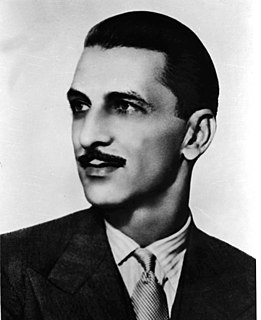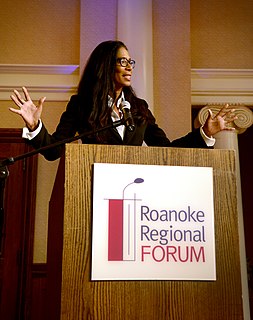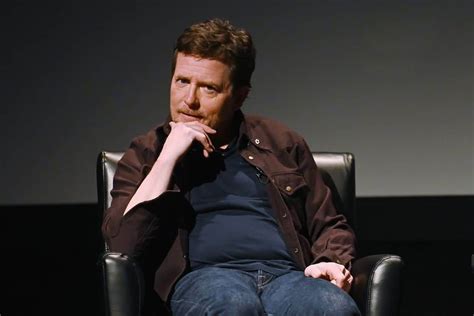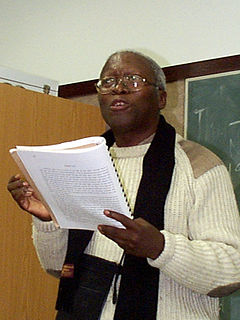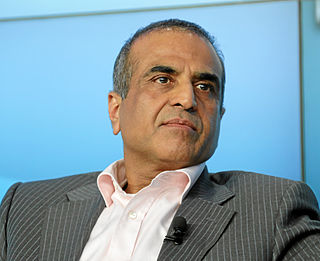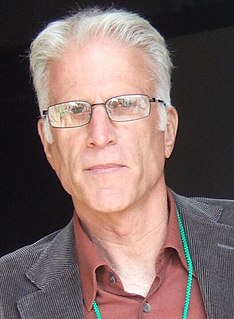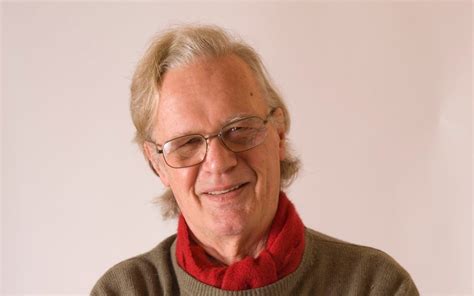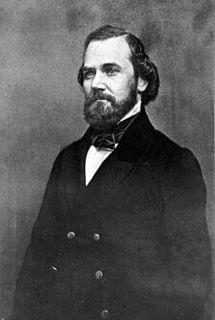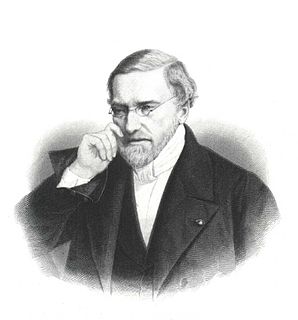Top 1200 Industrial Quotes & Sayings - Page 18
Explore popular Industrial quotes.
Last updated on November 8, 2024.
In relation to the earth we have been autistic for centuries. Only now have we begun to listen with some attention and with a willingness to respond to the earth's demands that we cease our industrial assault, that we abandon our inner rage against the conditions of our earthly existence, that we renew our human participation in the grand liturgy of the universe.
Those who came before us made certain that this country rode the first waves of the industrial revolution, the first waves of modern invention and the first wave of nuclear power. And this generation does not intend to founder in the backwash of the coming age of space. We mean to be part of it-we mean to lead it.
When we built Roomba, we explicitly designed it to not have a face. We didn't want to think it was cute, we wanted people to take it seriously so we gave it more of an industrial look. People personified their Roomba anyway. Over 80 percent of people name their robot. We did nothing to encourage people to do that but they do it anyway.
I used to be a pre-industrial writer: thousands of words in a spurt and then a few days off. But as I get older, I've switched to a mode best described as 'slow and steady wins the race.' Basically, I write during the same four hours every day, after breakfast and the all-important coffee, generally in the same room and wearing the same pajamas.
Kosovo is an agricultural economy particularly. It also has a couple of good power stations that exported power, and the big cooperative which they had there in the mining field is no longer functioning. So there is no immediate employment available for people in the industrial sector. All that needs to be going. But you will remember that it is part of Yugoslavia, and much of its trade and its dependence was on Serbia and Montenegro.
I am a most unhappy man. I accidentally ruined my country. A great industrial nation is now controlled by its system of credit. Our government is no longer based on the freedom of opinion, nor on the conviction and the majority decision, it is now a government which is subjected to the conviction and the compulsion of a small group of dominant men.
Schools train people to be ignorant, with style. They give you the equipment that you need to be a functional ignoramus. American schools* do not equip you to deal with things like logic; they don't give you the criteria by which to judge between good and bad in any medium or format; and they prepare you to be a usable victim for military-industrial complex that needs manpower.
The wealth gathered by Jamsetji Tata and his sons in half a century of industrial pioneering formed but a minute fraction of the amount by which they enriched the nation. The whole of that wealth is held in trust for the people and used exclusively for their benefit. The cycle is thus complete; what came from the people has gone back to the people many times over.
Roughly two billion people participate in the money economy, with less than half of those living in the wealthy countries of the developed world. These affluent 800 million, however, account for more than 75 percent of the world's energy and resource consumption, and also create the bulk of its industrial, toxic, and consumer waste.
Rightfully given near-deity status in the early days of industrial America, the J.P. Morgans, Rockefellers, Carnegies, and Vanderbilts of the world not only ran our country, they were also revered - and often despised - as larger-than-life personalities who could perform feats mere mortals could only dream of.
Many financial and industrial companies have been bailed out with the public's money, but very few of those who had run those companies have been punished for their failures. Yes, the top managers of those companies have lost their jobs - but with a fat pension and mostly with a handsome severance payment.
In terms of my conversations with [Vladimir] Putin, these are conversations that took place before the election. As I indicated, there has been very clear proof that they have engaged in cyber attacks. This isn't new. It's not unique to Russia. There are a number of states where we've seen low-level cyber attacks and industrial espionage and, you know, other behavior that we think should be out of bounds.
Let's take Southeast Asia. The last 20, 30 years has been what's called the "Asian Miracle" - fast economic growth, industrial society. It's happening all over, with one exception, which one? The Philippines is the one that can't grow, which the US has been running for 100 years. Is there a correlation? Have you read about it? It comes to mind, at least.
I am grateful to the fossil fuel industry for bringing us the concentrated carbon that took us through the Industrial Revolution and through the technological revolution and brought us to the gateway of the renewable energy revolution, or what I call the sunlight revolution. But that is where we must part ways. It's the natural order.
Tax the rich. End the wars. Break the power of lobbies in Washington. These are the demands of Occupy Wall Street. They are very important. The US corporations dominate Washington. The big oil companies, Wall Street banks and the military-industrial complex - they rule this country and their influence and power has to be broken.
When we built Roomba, we explicitly designed it to not have a face. We didn't want to think it was cute; we wanted people to take it seriously, so we gave it more of an industrial look. People personified their Roomba anyway. Over 80 percent of people name their robot. We did nothing to encourage people to do that, but they do it anyway.
The assumption is that people so ignorant and thoughtless and silly and greedy may simply call upon the Army Corps of Engineers in order to receive a clean and abundant supply of water from reservoirs in the mountains. A much likelier outcome is that they will be drinking an ever stronger mixture of sewage and mine acid and mud and cropspray and various other defecations of the industrial paradise.
One of the most extraordinary things about industrial society of the present day is its idiot lack of memory. Tabloids and movies take the place of mental processes and revolts, crimes, despairs pass off in a dribble of vague words and rubber stamp phrases without leaving a scratch on the mind of the driven instalment-paying, subway-packing mass.
Tragically, some people are genetically more susceptible than others to agripoisons and industrial pollutants. Genetic engineering to correct these medical problems is a narrow (reductionistic) and instrumental (mechanistic) response to a problem that is fundamentally conceptual: namely, our attitude toward life and our mistreatment of the Earth, plants, and animals-and ourselves in the process.
There is too great a tendency (perhaps encouraged by popular journalism) to deal with the dramatic moments, forgetting that these are not always the most significant moments. ... To find the significant rather than the dramatic features of industrial controversy, of a disagreement in regard to policy on board of directors or between managers, is essential to integrative business policies.
All black people who are even minimally conscious, black people who have ever experienced Europe's technological power crusading in the vanguard of a civilizing mission, have profound feelings of inferiority and bitterly regret the fact that the Industrial Revolution did not agreeably commence in Dahomey or Dakar. Nothing is achieved by concealing this fact.
India is a very, very old country with a history, culture and tradition like Italy. And we can use the English language to be in touch. Then India's industrial situation is similar to us. Both have big companies but are dominated by small and medium-sized companies. It is extremely important for both to do joint ventures.
To husband is to use with care, to keep, to save, to make last, to conserve. Old usage tells us that there is a husbandry also of the land, of the soil, of the domestic plants and animals. And so it appears that most and perhaps all of industrial agriculture's manifest failures are the result of an attempt to make the land produce without husbandry.
But the broader lesson of the first Industrial Revolution is more like the Indy 500 than John Henry: economic progress comes from constant innovation in which people race with machines. Human and machine collaborate together in a race to produce more, to capture markets, and to beat other teams of humans and machines.
It is not just contemporary industrial society that is dysfunctional; it is civilization itself. We humans are born to be creatures of the land and the sea and the stars; we are relations to the animals, cohorts to the plants. Our well being, and the well-being of the very planet depend on our pursuance of our given place within the natural world.
The industrial way we fish for seafood is harming the marine habitats that all ocean life depends upon. Indiscriminate commercial fishing practices that include miles of driftnets, long lines with thousands of lethal hooks and bottom trawls are ruining ocean ecosystems by killing non-seafood species, including sea turtles and marine mammals.
Anyone who thinks that wind factories are environmentally friendly should Google "Cefn Croes Photo Gallery", to see 100 chilling pictures showing how many miles of unspoiled Welsh countryside were disfigured to create the largest industrial site in Britain: all to "save" annually less than a quarter of the CO? emissions from a single jumbo jet.
The industrial economy which divides society absolutely into two portions, the payers of wages and the receivers of them, the first counted by thousands and the last by millions, is neither fit for, nor capable of, indefinite duration: and the possibility of changing this system for one of combination without dependence, and unity of interest instead of organized hostility, depends altogether upon the future developments of the Partnership principle.
That which is useless dies. Animals that fail to serve some useful purpose in the scheme of things slowly but surely become extinct. Let any part of the human body cease to perform its ordained function, and it withers-as when an arm is kept long in a sling. This same decree, that nothing useless is permitted to survive, runs through the mind of the industrial world.
We are committed to cleaning up the air and cleaning up the water. But we also are committed to a strong economy, and we are not going to allow the environmental issue to be used sometimes falsely and sometimes in a demagogic way basically to destroy the system-the industrial system that made this the great country it is.
Future generations will wonder in bemused amazement that the early 21st century's developed world went into hysterical panic over a globally averaged temperature increase of a few tenths of a degree, and, on the basis of gross exaggerations of highly uncertain computer projections combined into implausible chains of inference, proceeded to contemplate a roll-back of the industrial age.
If one accepts the 24th and 104th Psalms as scriptural norms, then surface mining and other forms of earth destruction are perversions. If we take the Gospels seriously, how can we not see industrial warfare - with its inevitable massacre of innocents - as a most shocking perversion? By the standard of all scriptures, neglect of the poor, of widows and orphans, of the sick, the homeless, the insane, is an abominable perversion.
I think it’s the right moment to talk about it because it is part of a revolutionary perspective - how can we not only discover more compassionate relations with human beings but how can we develop compassionate relations with the other creatures with whom we share this planet and that would mean challenging the whole capitalist industrial form of food production.
What's interesting about the shift from an industrial age to a technological age is that we keep inventing new media: movies, records, radio, television, the Internet, and now ebooks - and one of the things that's most interesting about the invention of a new medium is watching it reinvent itself as it penetrates the culture.
In fact, Gentlemen, no geometry without arithmetic, no mechanics without geometry... you cannot count upon success, if your mind is not sufficiently exercised on the forms and demonstrations of geometry, on the theories and calculations of arithmetic ... In a word, the theory of proportions is for industrial teaching, what algebra is for the most elevated mathematical teaching.
London in the '70s was a pretty catastrophic dump, I can tell you. We had every kind of industrial trouble; we had severe energy problems; we were under constant terrorist attack from Irish terrorist groups who started a bombing campaign in English cities; politics were fantastically polarized between left and right.
The prison-industrial complex employs millions of people directly and indirectly. Judges, prosecutors, defense attorneys, prison guards, construction companies that build prisons, police, probation officers, court clerks, the list goes on and on. Many predominately white rural communities have come to believe that their local economies depend on prisons for jobs.
So long as I confine my activities to social service and the blind, they compliment me extravagantly, calling me 'arch priestess of the sightless,' 'wonder woman,' and a 'modern miracle.' But when it comes to a discussion of poverty, and I maintain that it is the result of wrong economics-that the industrial system under which we live is at the root of much of the physical deafness and blindness in the world-that is a different matter!
Globalization, which attempts to amalgamate every local, regional, and national economy into a single world system, requires homogenizing locally adapted forms of agriculture, replacing them with an industrial system-centrally managed, pesticide-intensive, one-crop production for export-designed to deliver a narrow range of transportable foods to the world market.
If we start treating addiction as a public health issue, with more compassion, and without the criminal element, our society will be better off and violence and public safety will improve as a result. We'll also be taking a big step in taking down the prison-industrial complex that disproportionately harms communities of color.









